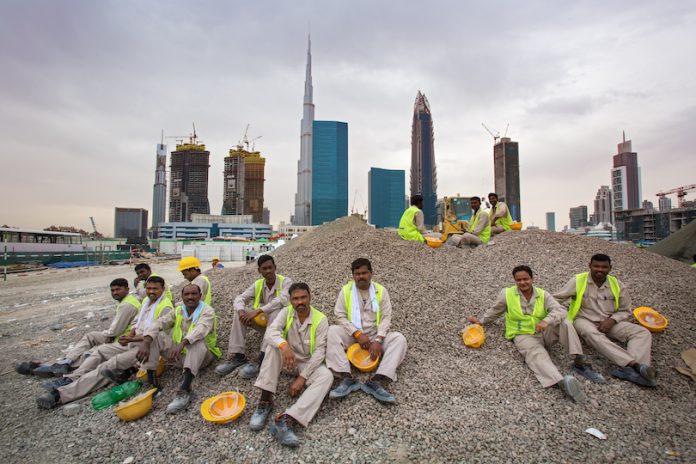Government reports indicate that poverty rates have risen in the UAE and families are turning to charity groups for help.
One of the officials of the Emirati charity “Bait Al Khair” while criticizing the inability of the UAE government to hold a comprehensive survey, complained about the increase in the scope and extent of poverty in this rich country.
Abedin Al Awadi, General Manager of the Bait Al Khair of the Emirate, said that there has been a significant increase in requests from Emirati citizens to receive donations and charitable aids from the organization and other Emirati charitable institutions.
In a statement published by the local newspaper Al Bayan, Al Awadi said: The increasing requests to receive donations reflect the rise of unemployment in the country, and the growing needs of low-income families.
Read More:UAE mercenaries’ rape of six minor girls sparks fury in Yemen’s Hudaydah
Referring to the many challenges facing charities in the UAE, he said: among these challenges are the lack of coordination between organizations, the lack of specialized charity staff and the lack of social surveys that help us identify needy groups.
The General Manager of the Jamiat Bait Al Khair of the Emirate, said: Another major challenge facing Emirati charities today is the limited funding compared to the growing demand for aid, as the financial resources of these institutions remain limited to Zakat and all other temporary sources. We do not have any stable funding source.
He explained: The economic conditions resulting from the 2008 financial crisis and the two-year crisis of Covid-19 and other global crises have affected the income of Emirati citizens.
Official figures show that the unemployment rate among Emirati citizens is over 20 percent. The high unemployment rate in the UAE is mainly due to deep social and tribal differences, population structure and the refusal of many jobs to employ Emirati citizens, forcing local citizens to take out various forms of loans and borrowings.
UAE: Former Khashoggi lawyer sentenced to 3 years in prison for financial crimes
There are strict rules for obtaining government financial aid in the UAE. Before giving government assistance to any person, the government looks at his income, assets, proportion of rooms in the house on the basis of number of family members, rental status and health status of the family.
At least 98 percent of households receiving aid from public and charitable organizations have debt that prevents them from spending on necessities of life.
Interestingly, Emirati citizens make up only 9 percent of the total population of the UAE, and the UAE government does not provide any official data on poverty. This lack of information has raised many concerns about the facts of the judgment on society.
Last March, the UAE citizens launched an ” priority to Emirati citizens in job” campaign on Twitter and shared a video of hundreds of unemployed Emirati citizens protesting to reach their voice to the Emirate’s King bin Zayed over the current situation.
A senior official in Dubai announced last May that the United Arab Emirates was facing an unemployment crisis due to the government’s failure to address the problem.
Read More: All eyes turn to the UAE amid rumors of legalising gambling
The study center for “Gulf Thought” said in a study that the most important reasons for the rise in the poverty in the UAE are the surprising and exorbitant spending by the ruling families of the UAE, the non-disclosure of these expenses, and the emirate’s financial aid to abroad.
Christopher Davidson, head of Middle East policy at the University of “Durham” in England, writes in an article published by the American magazine “Foreign Policy”: “The real picture of Emirati citizens is not what is disseminated. In this country Job opportunities are limited only to Dubai and Abu Dhabi. Other five states falling into the poverty, the gap between the rich and the poor in these states is increasing.
Davidson says: If the voices of protest and criticism are not being heard in the UAE, it does not mean that its citizens are satisfied, the reality is something else, the reality is that many UAE residents are “Al-Badaun”. Al Badun means emigrants or residents of the United Arab Emirates who have not been granted Emirati citizenship under the laws of that country. Some of them live in UAE from several generations. But they are also deprived of the basic rights of citizenship, and are the poorest section of UAE society.
The real poverty in the UAE can be seen in the working conditions of the working class. Migrants come to Dubai in search of work and are promised a good and healthy life. But unfortunately, these assurances are rarely fulfilled.













